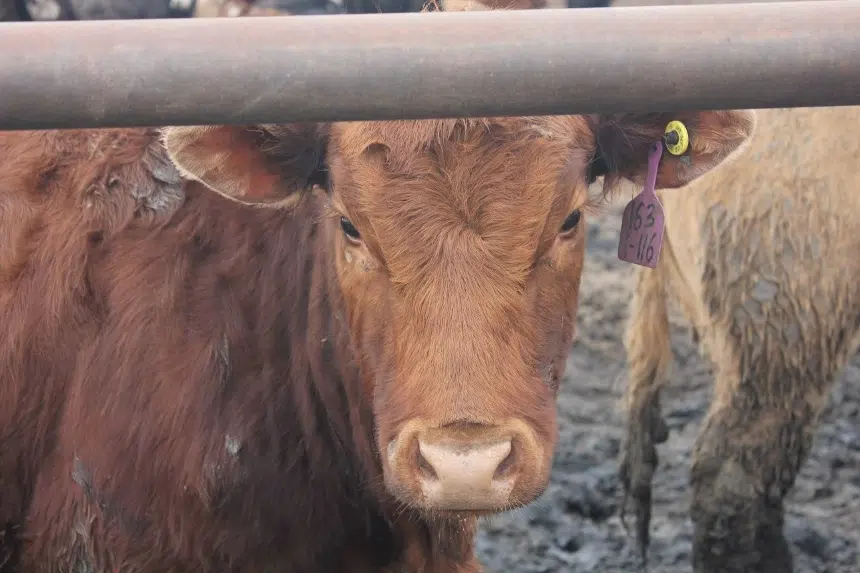The Government of Saskatchewan says help is on the way for ranchers and livestock producers devastated by drought conditions.
“Producers in some areas of the province are dealing with prolonged drought, particularly in western Saskatchewan,” the government explained in a statement Monday. “Precipitation has remained well below normal, contributing to a substantial moisture deficit and hindering recovery of pasture and forage ranges.”
The provincial government is making $70 million in aid available “to help offset extraordinary costs of feeding livestock to maintain the breeding herd in Saskatchewan.”
The extra money comes after the province’s agriculture minister, David Marit, travelled around the southwest area of the province speaking to ranchers about their concerns. Hay crops have suffered during the drought, causing producers to look other places for feed to buy.
“The issue is around feed,” said Marit, “not only trying to find it but the transportation cost to go and get it.”
Many farmers were trying to lower the risk factors heading into the winter, which meant selling their herds because they could not keep up with the high costs. Marit said he expects more than 1,000 producers to take advantage of of the aid available.
According to the government, “funding will be available based on receipts or appropriate documentation for extraordinary expenses for the purchase of feed or transportation of feed or livestock, to provide cash flow to eligible producers impacted by significant drought.”
“What we are concerned about is maintaining the herd (and) maintaining the breeding stock here in Saskatchewan,” said Marit.
The funding will provide up to $80 per head to eligible producers in order to maintain breeding stocks of cattle, bison, horses, elk, deer, sheep and goats, and will be coming “as soon as possible.”
In addition, the provincial government said it is working with the federal government to jointly examine a potential response from AgriRecovery.
“If and when the federal government comes to the table, we will be ready for that,” said Marit.
“We remain committed to ensuring livestock producers have the support they need, as quickly as possible, so they can continue to provide the high-quality food Saskatchewan families and the world rely on,” Premier Scott Moe said in a post on social media.
Grant McLellan, the CEO of the Saskatchewan Cattlemen’s Association, said the provincial government’s funding was a “good start” to help producers. He too is hoping the federal government gets involved soon.
“We’ve obviously been advocating for additional support for the industry with the drought that’s been plaguing our industry and our producers for the past number of years,” McLellan said. “It’s really important that our governments step up to help ensure the success and growth of this industry and, in this case, preventing it from shrinking.”
This year, the provincial government froze the leasing rate for livestock producers, and then producers were compensated for leasing lands starting at 20 per cent and capping at 50 per cent.
“This support is promising, and the Saskatchewan Association of Rural Municipalities is thankful for how quickly the province stepped up to assist those livestock producers most in need. It will certainly help,” SARM president Ray Orb added in the statement.
“We are confident that the federal government is working together with the province to assess how they can provide additional support through AgriRecovery and look forward to seeing what that much-needed assistance will be.”
The provincial government noted that other support has already been put in place, including boosting the 2023 AgriStability interim benefit payment percentage from 50 to 75 per cent through an agreement with Ottawa.
In a statement, NDP Agriculture Critic Trent Wotherspoon said the announcement of support from the provincial government was “welcome news.”
“We call on the federal government to commit as well and together with the province to get needed dollars out the door now to help livestock producers facing extraordinary drought challenges,” Wotherspoon added. “We will keep listening to and advocating for producers to ensure that supports meet the challenge and are delivered in a timely way.”
— With files from 980 CJME’s Gillian Massie











